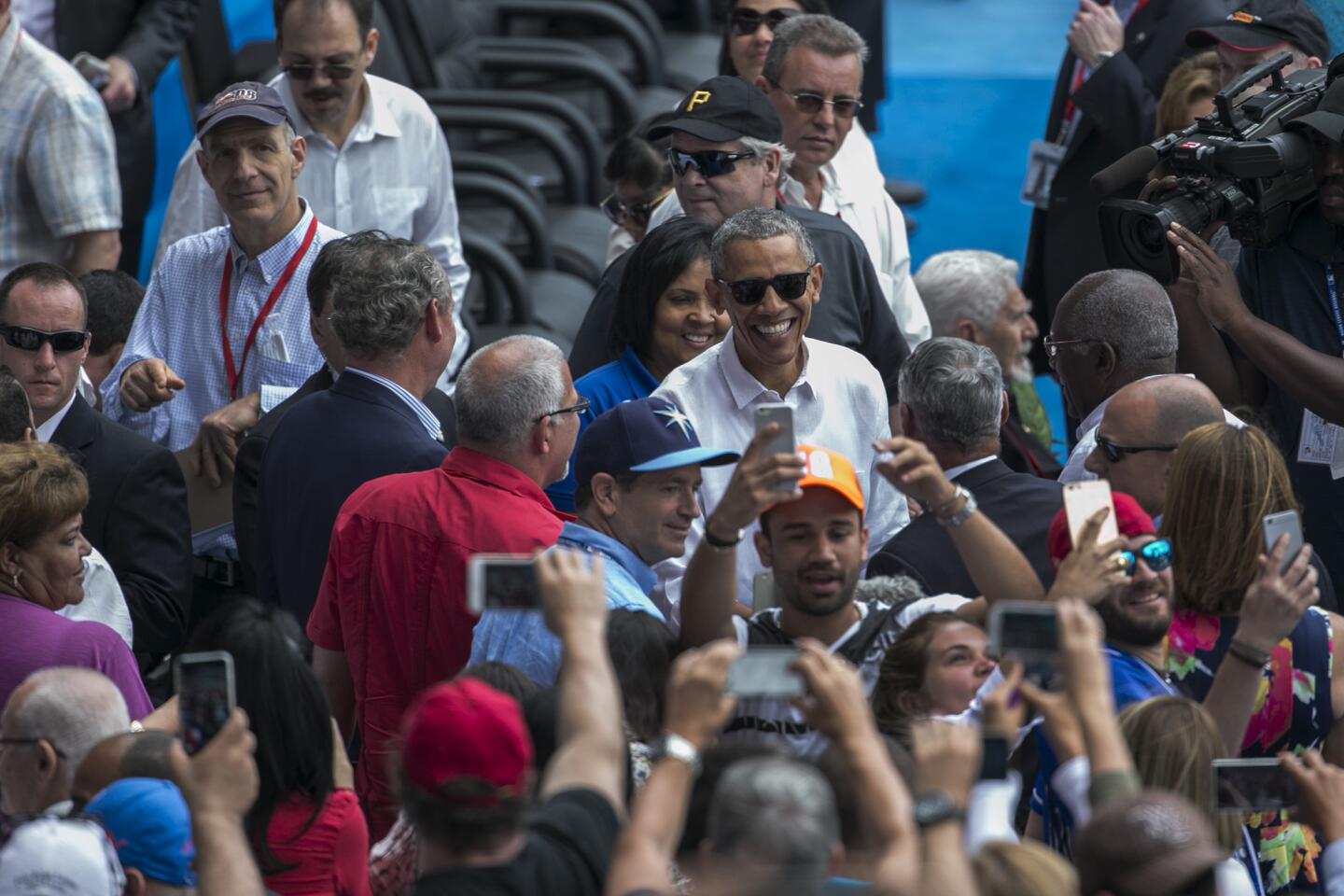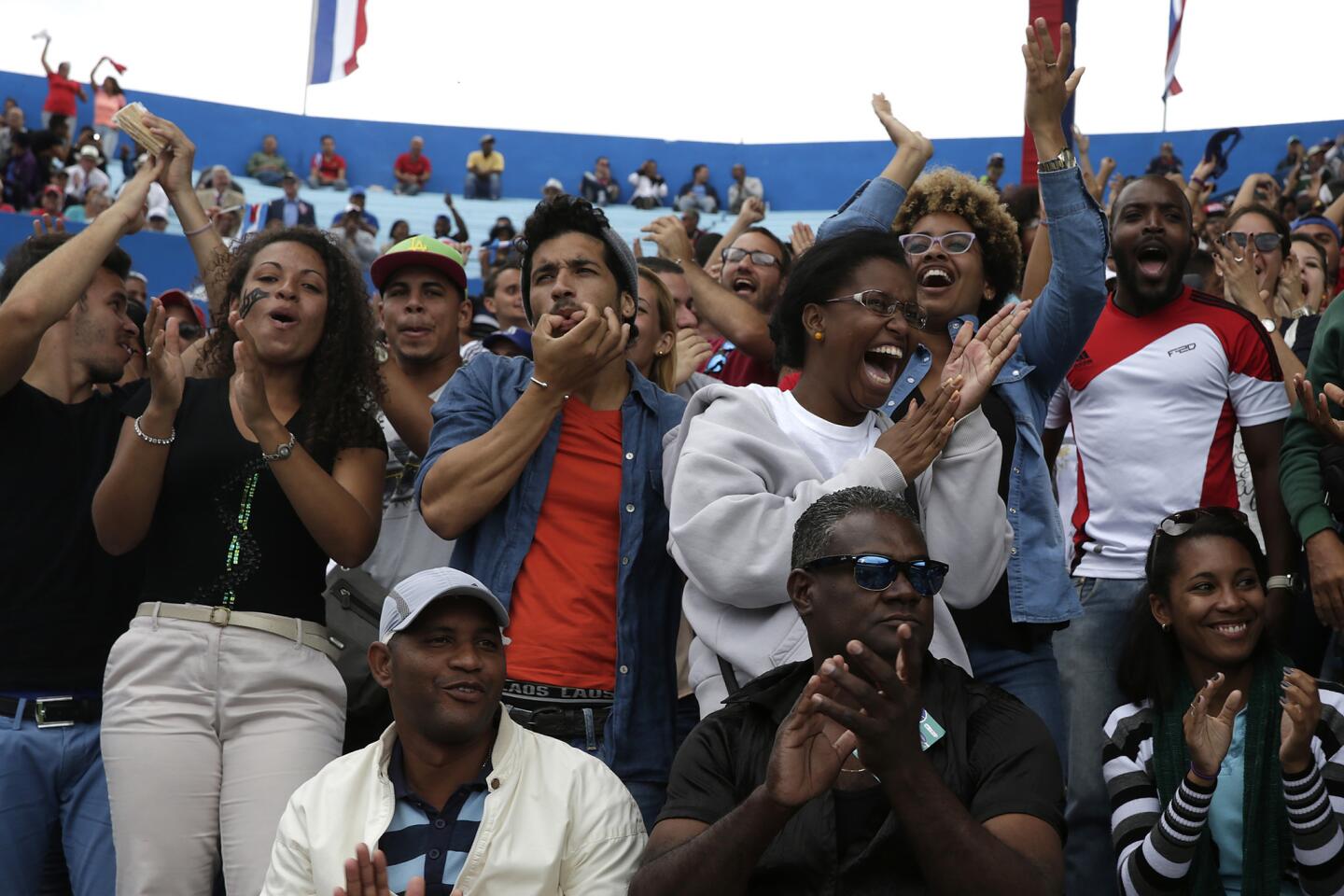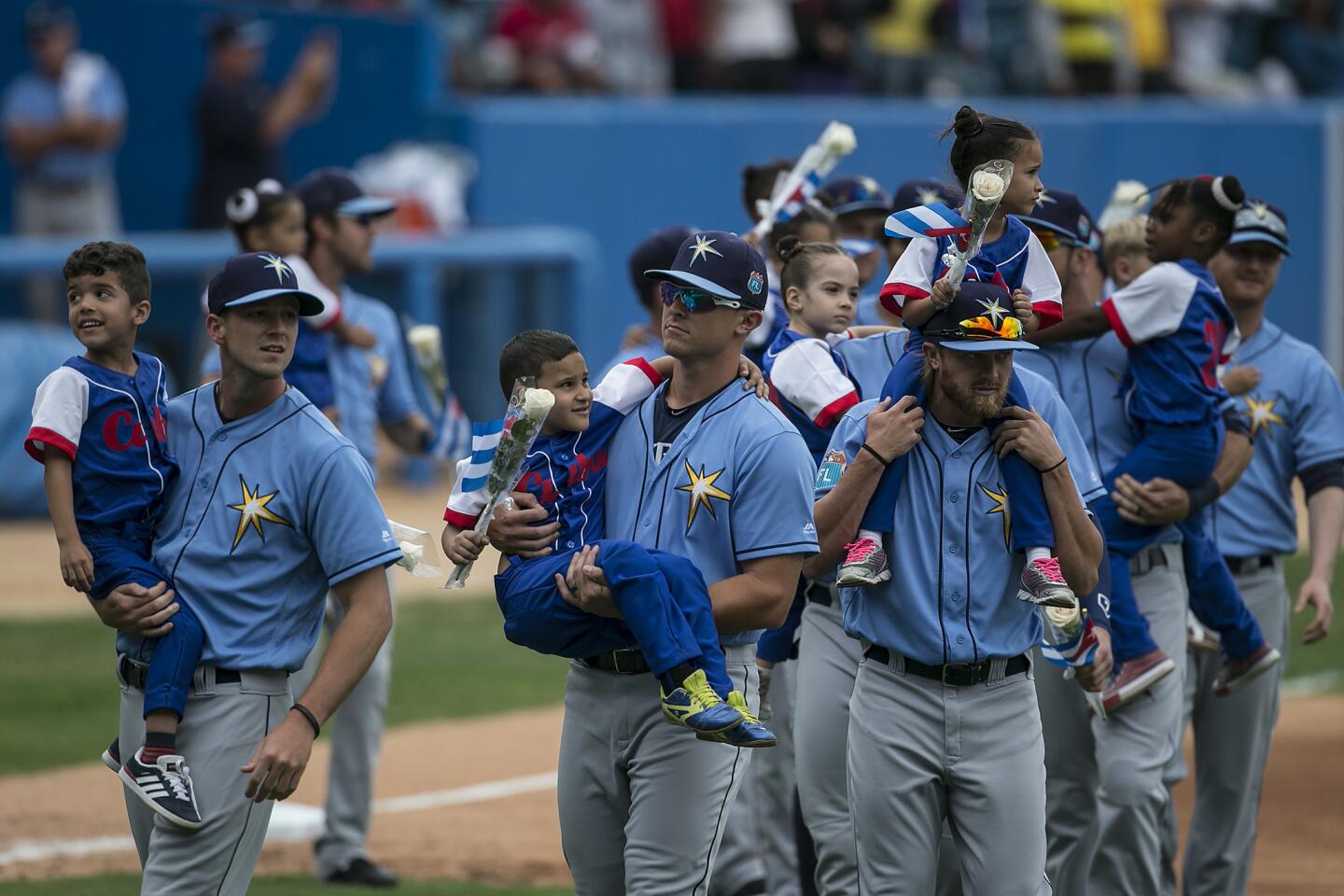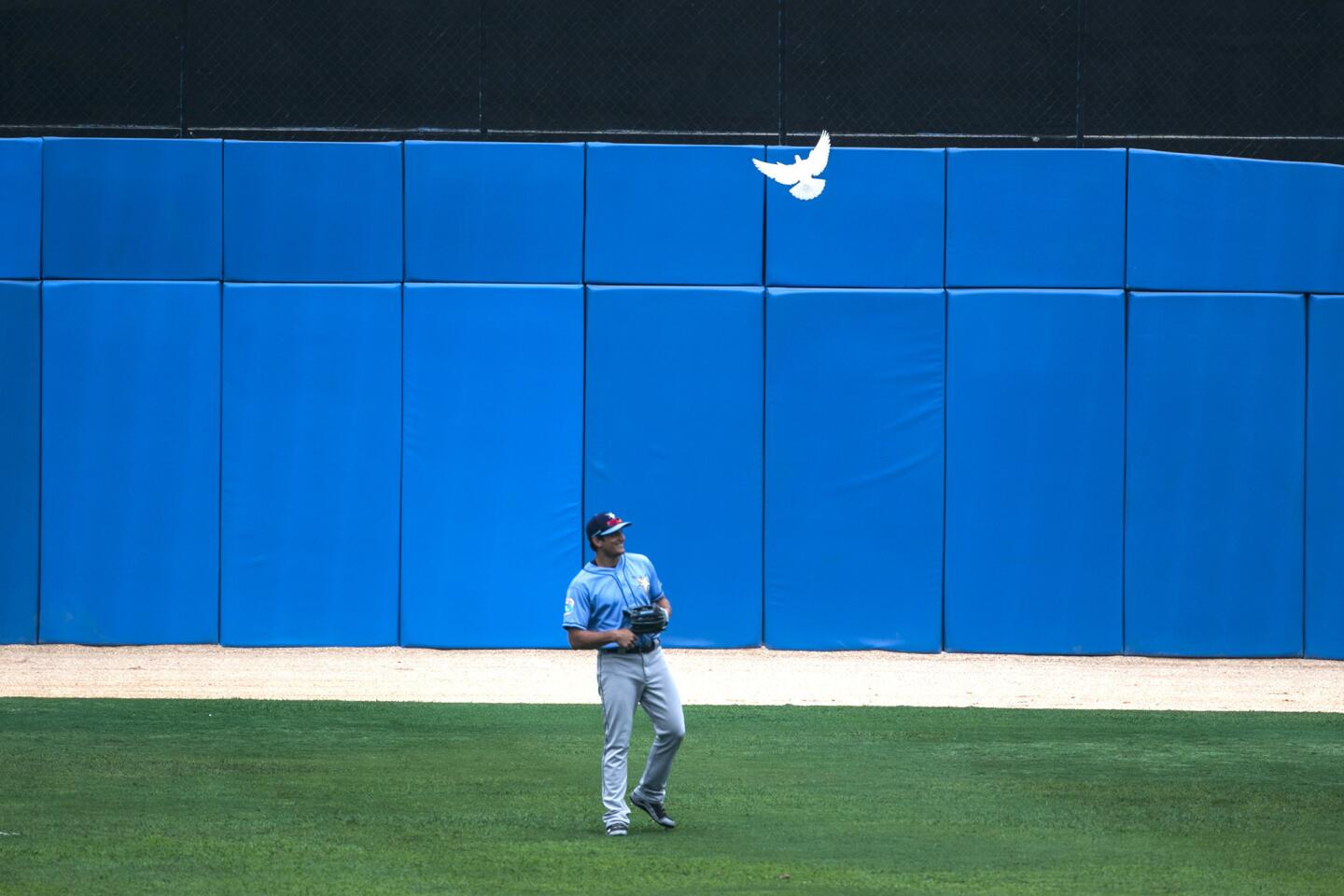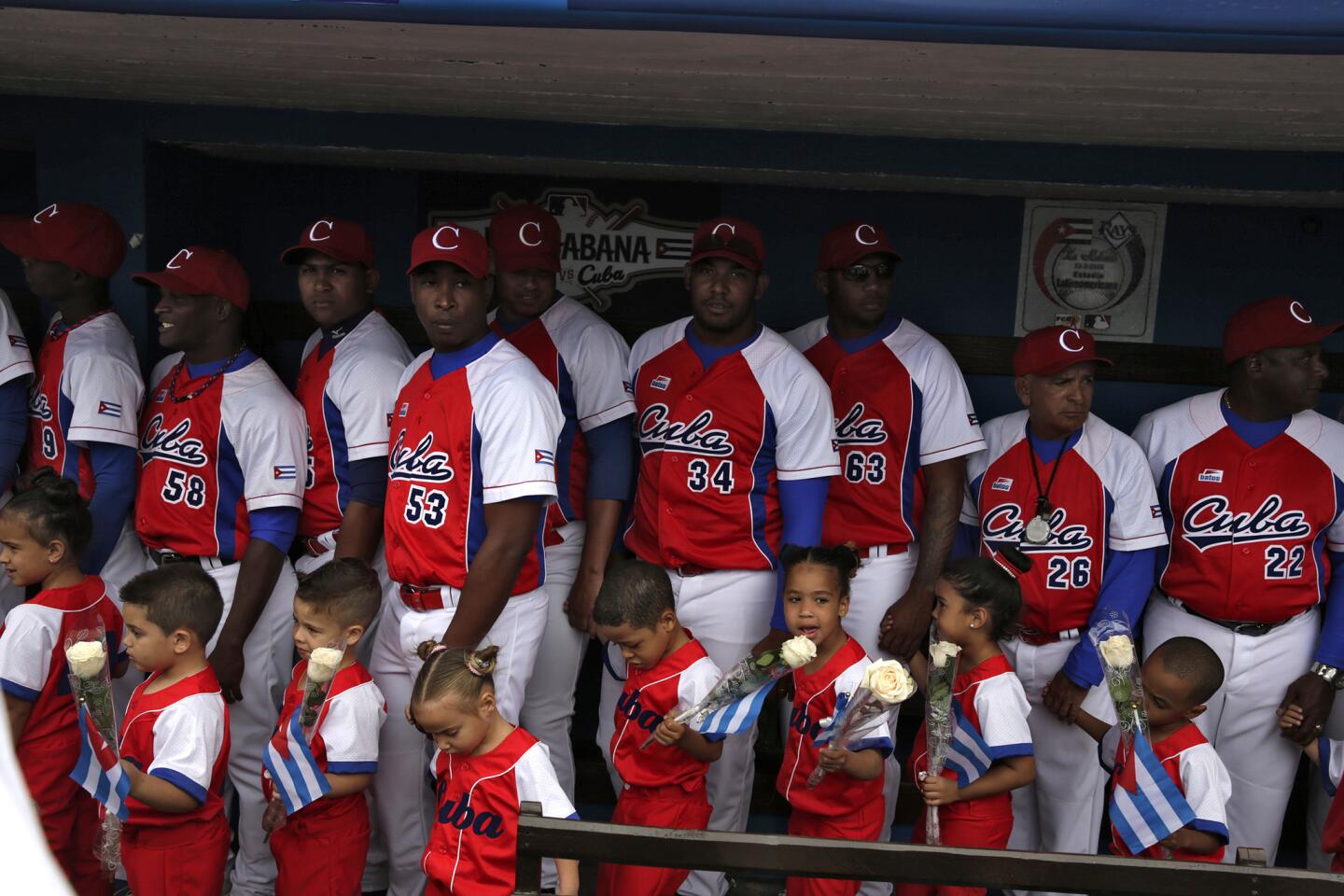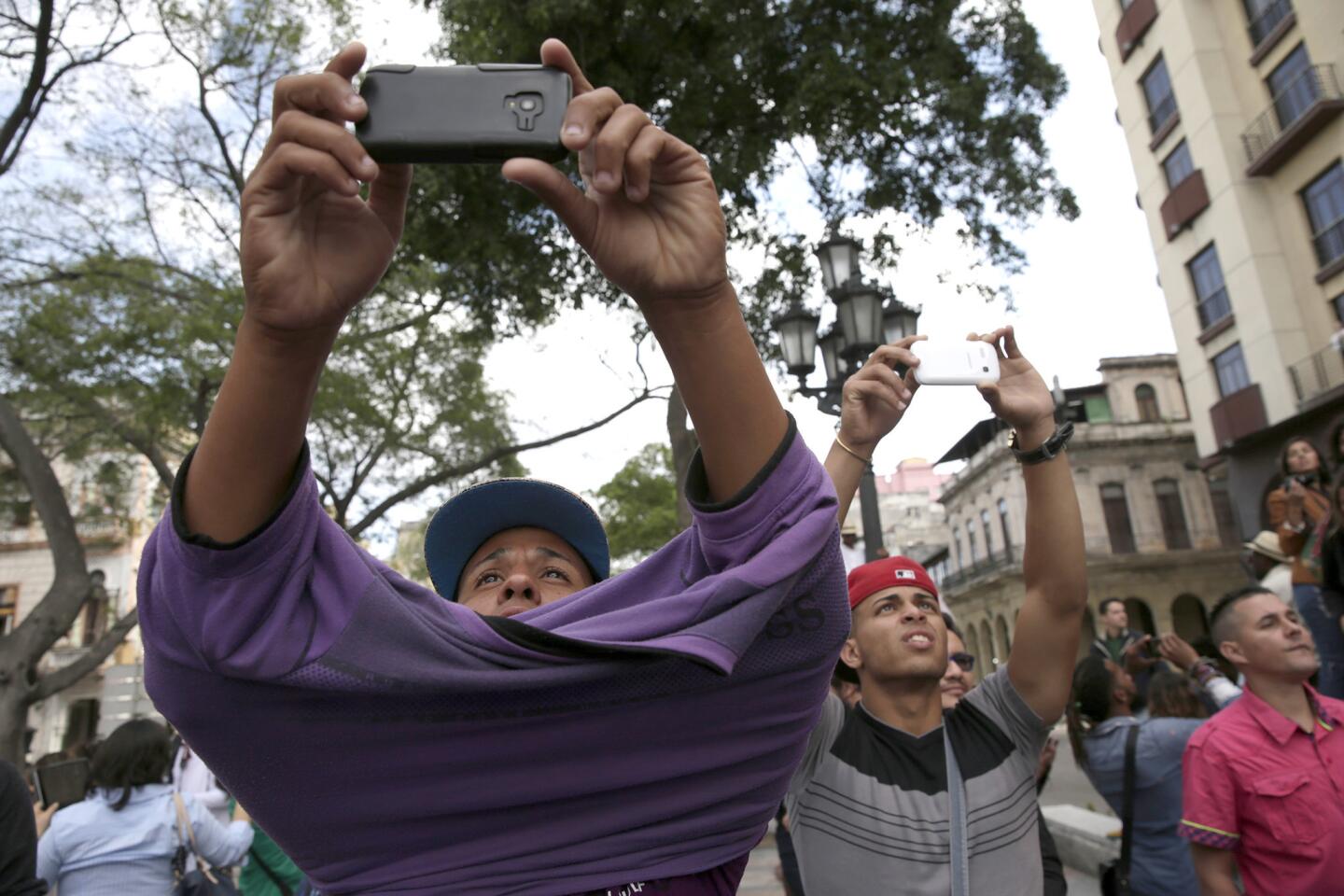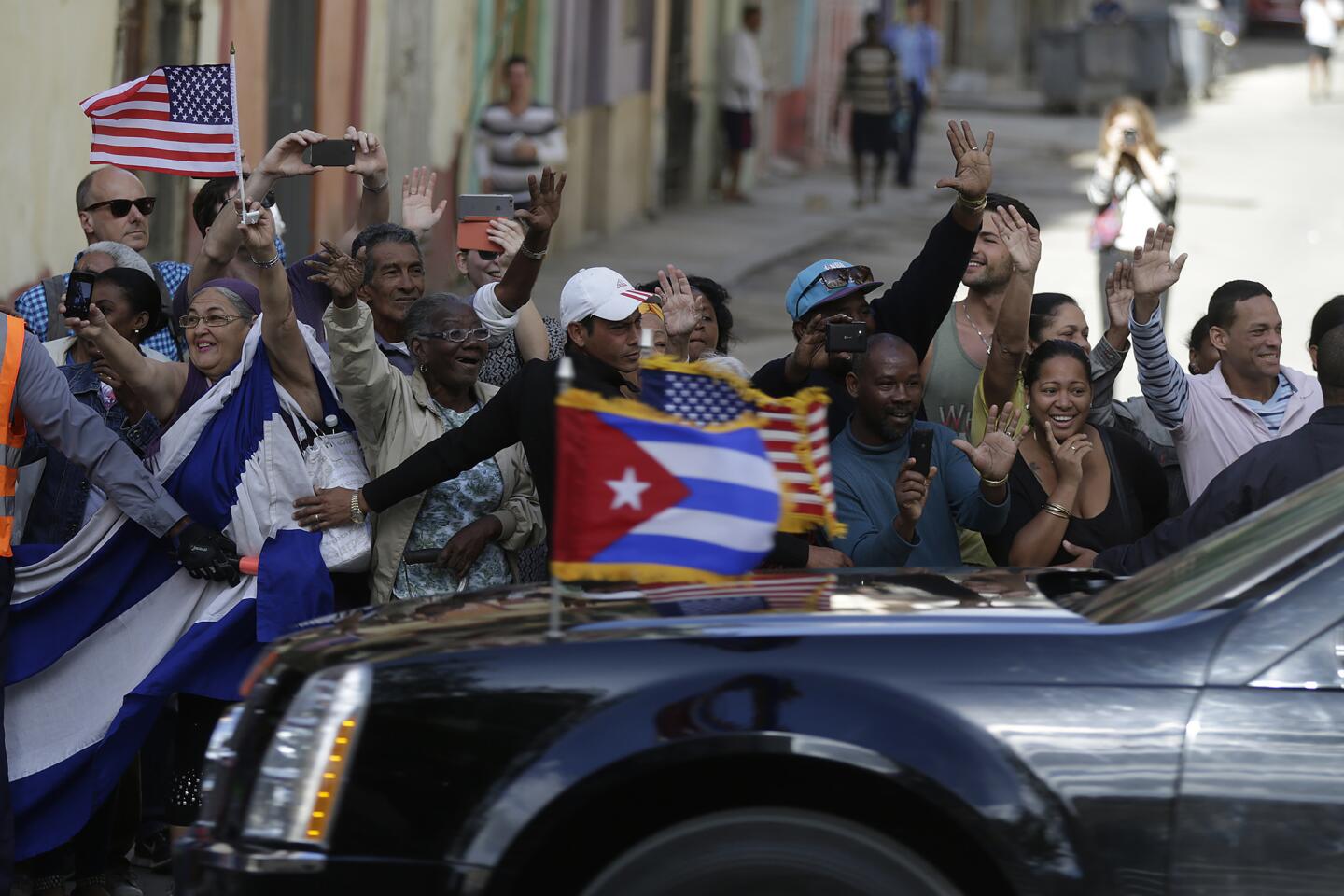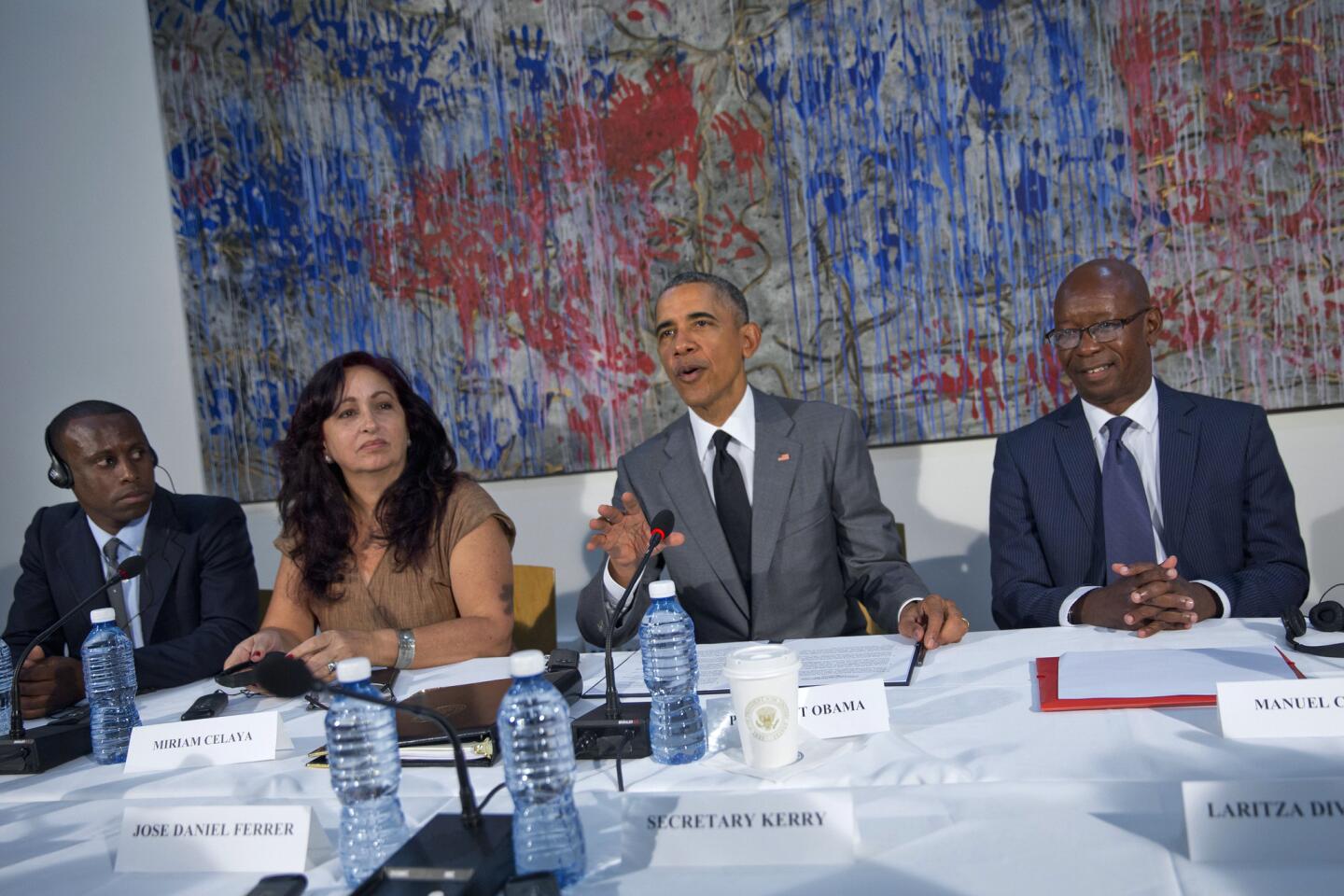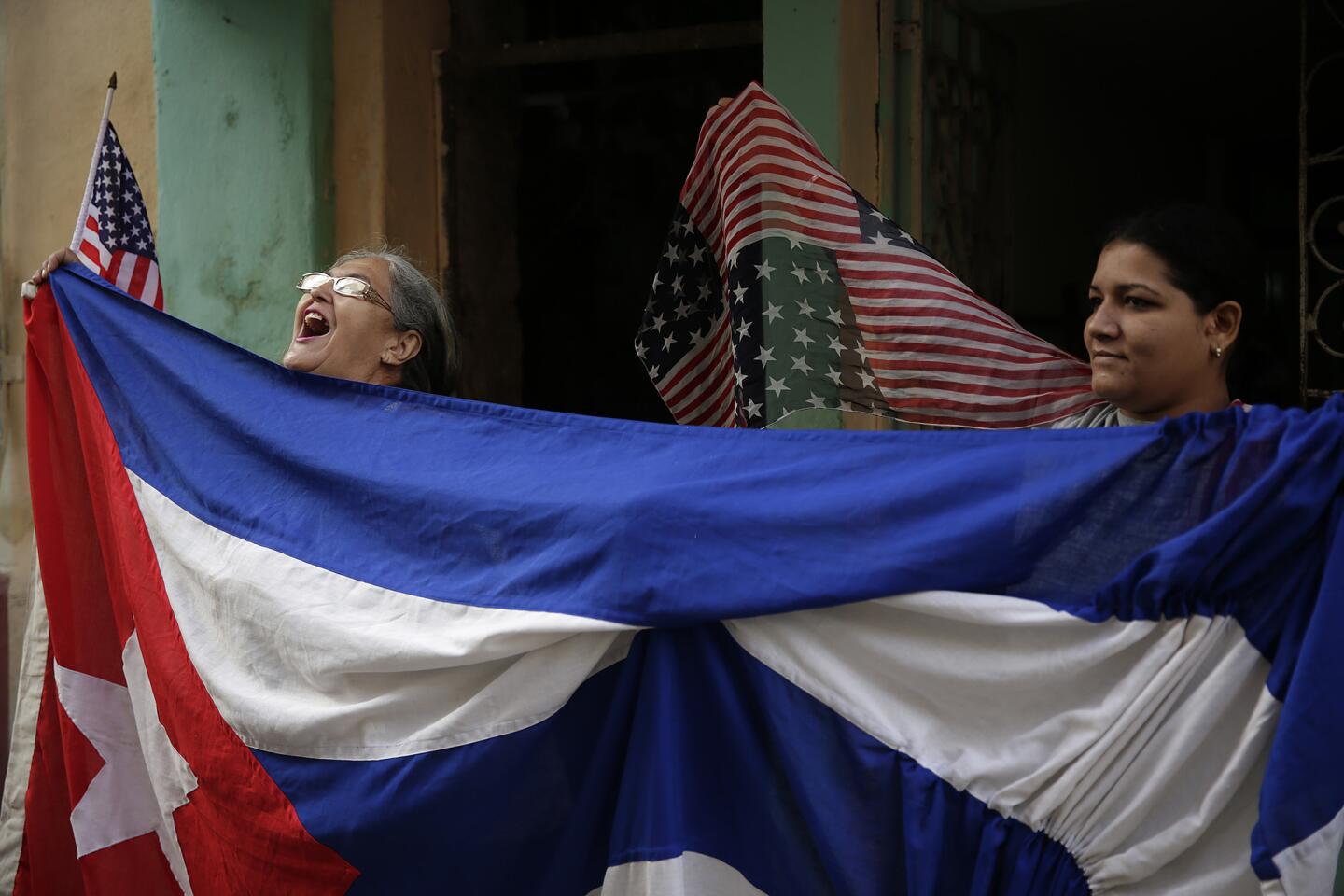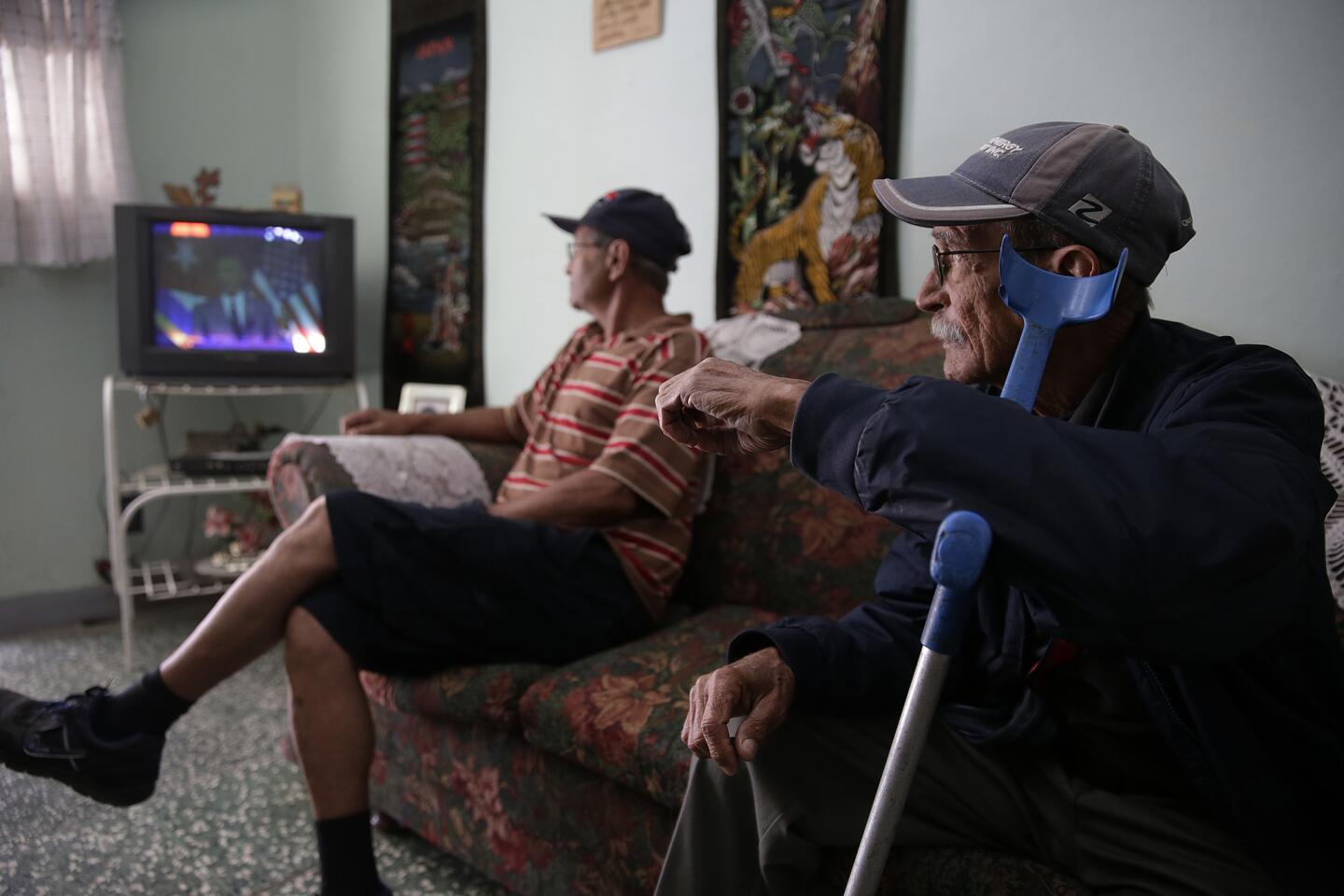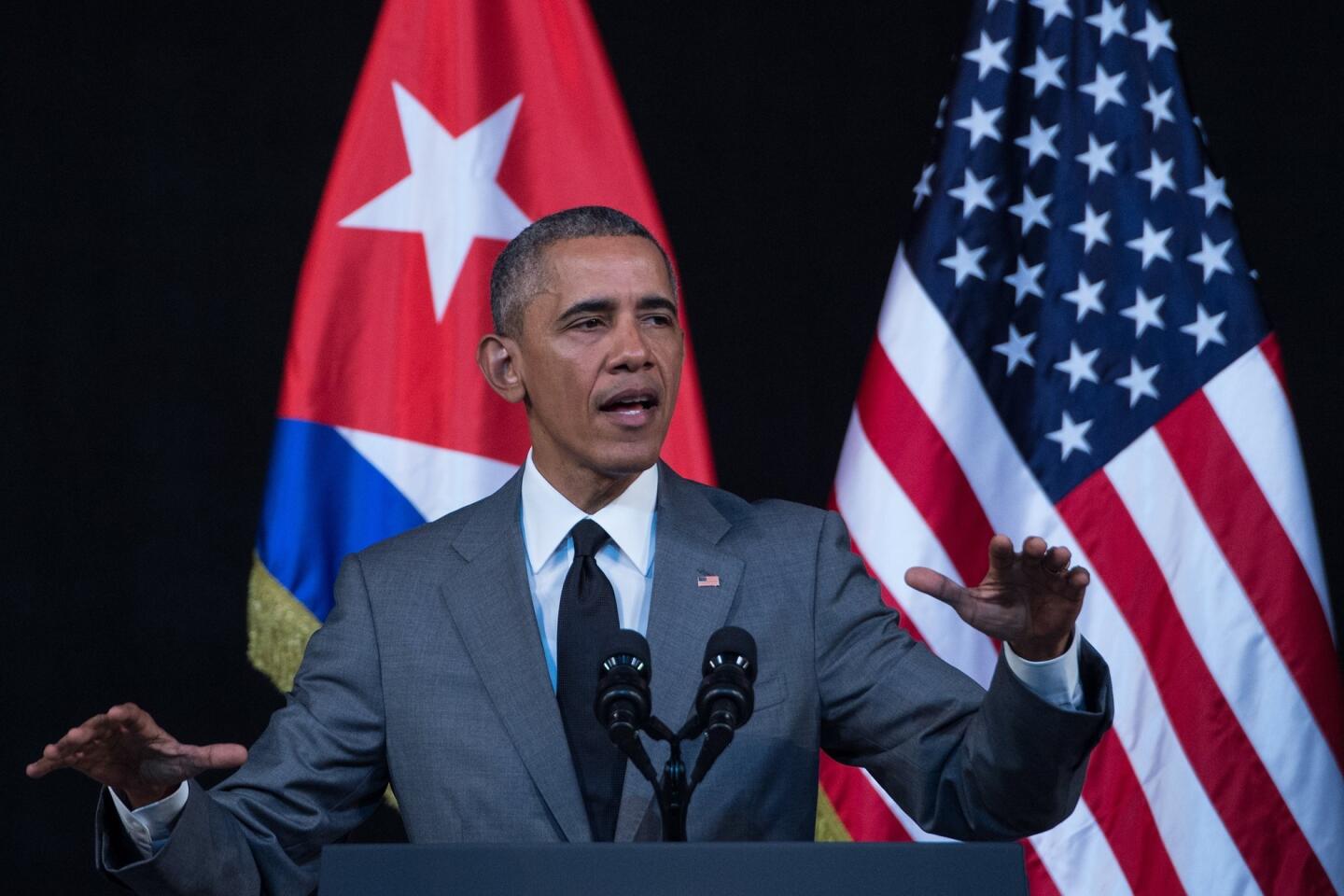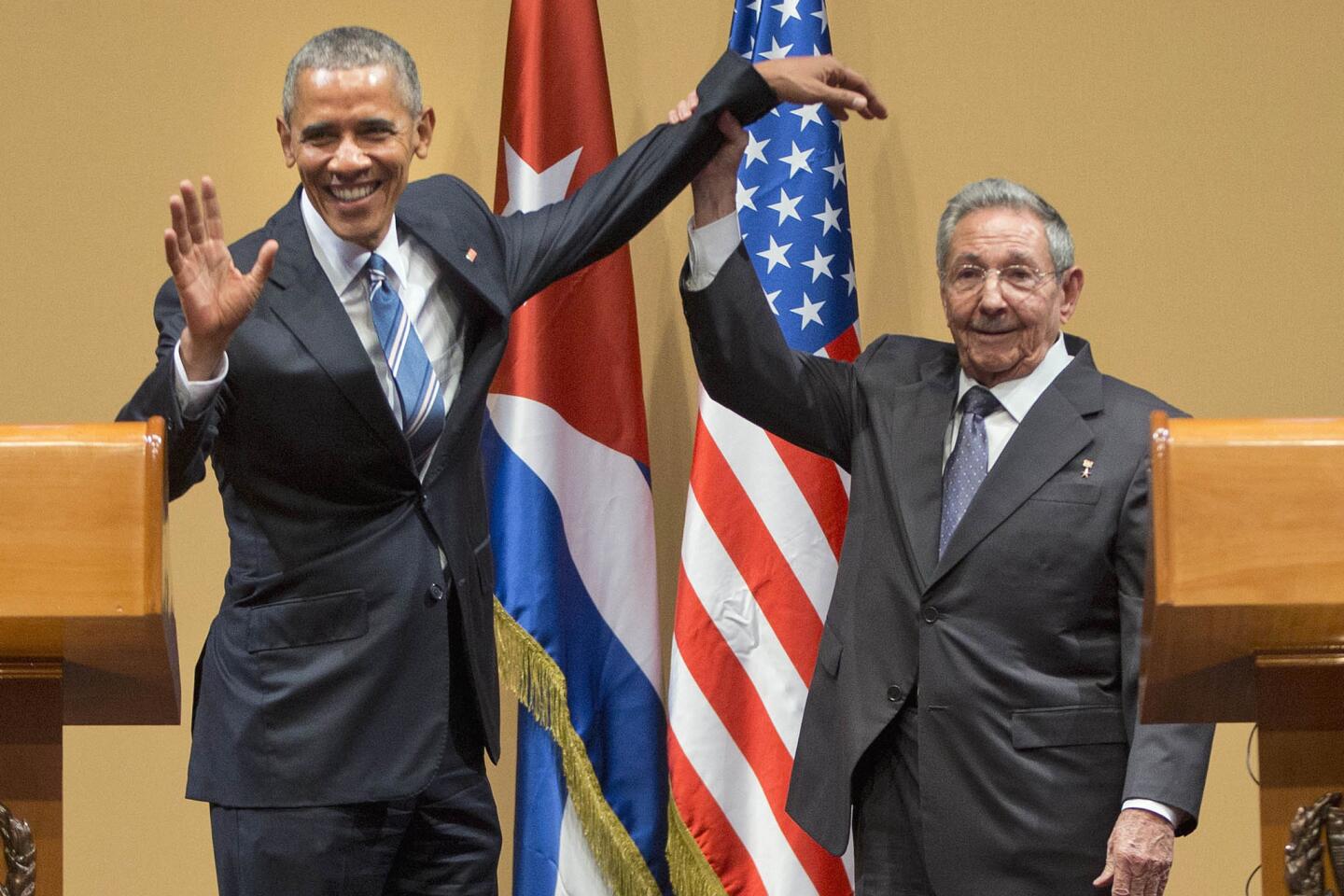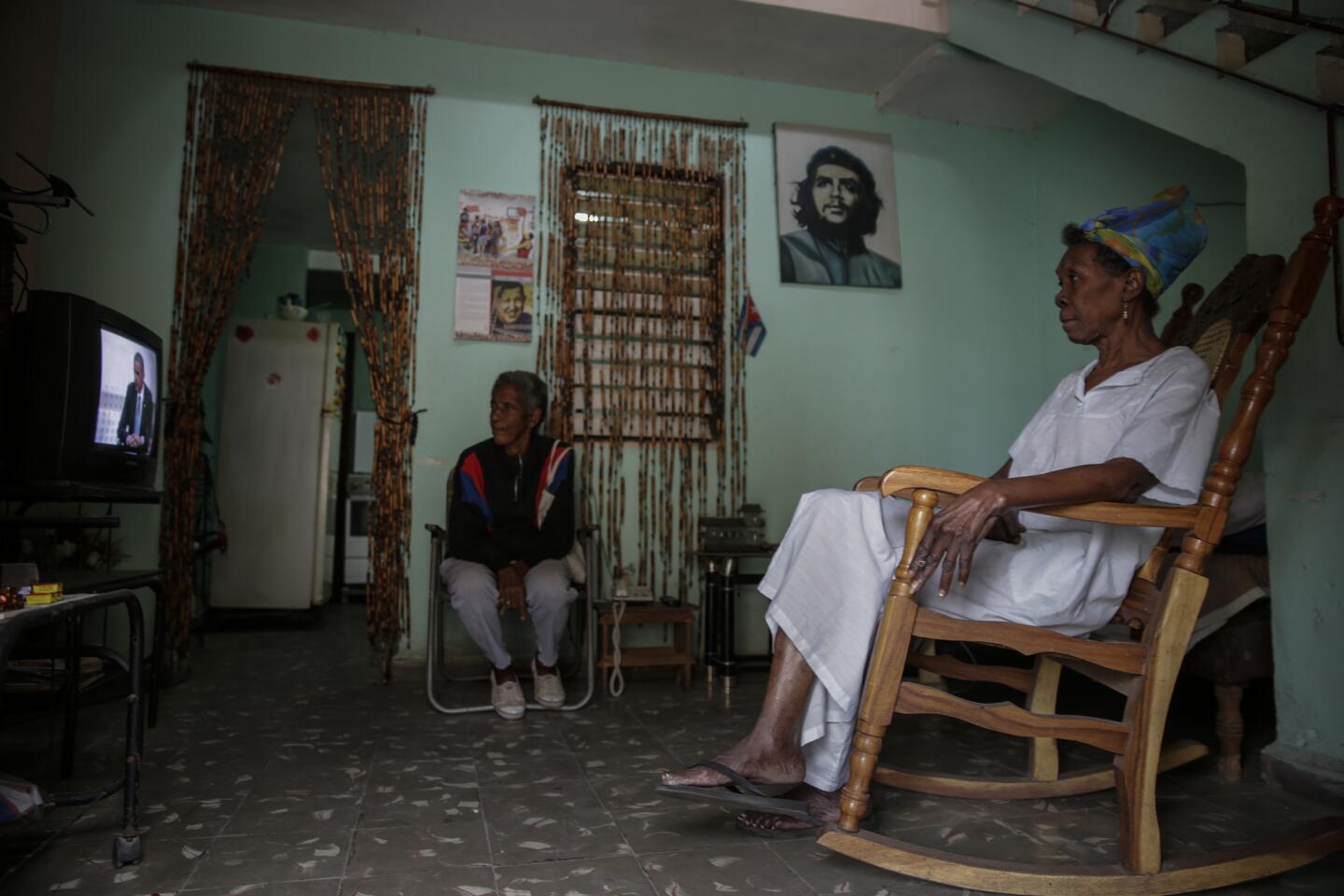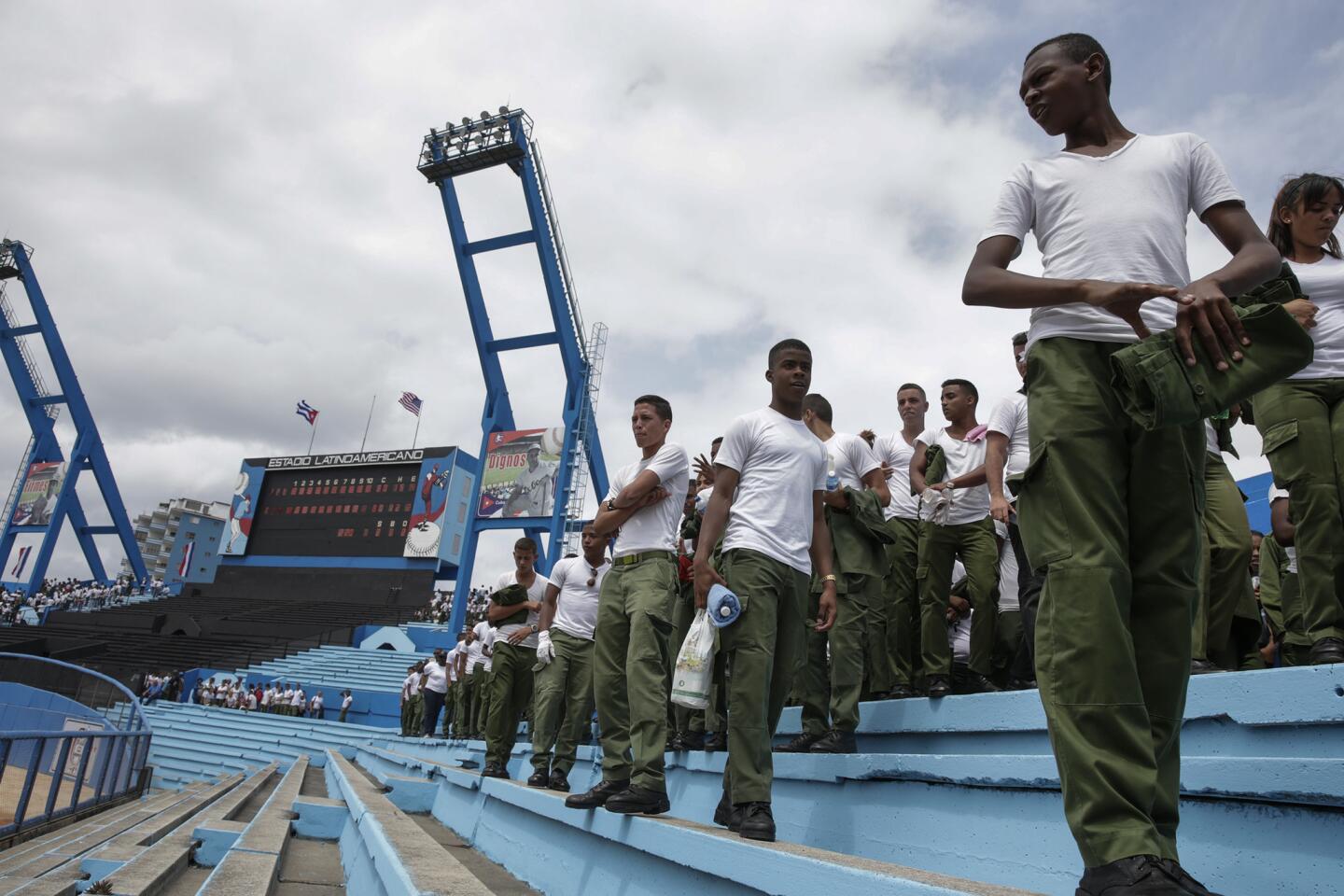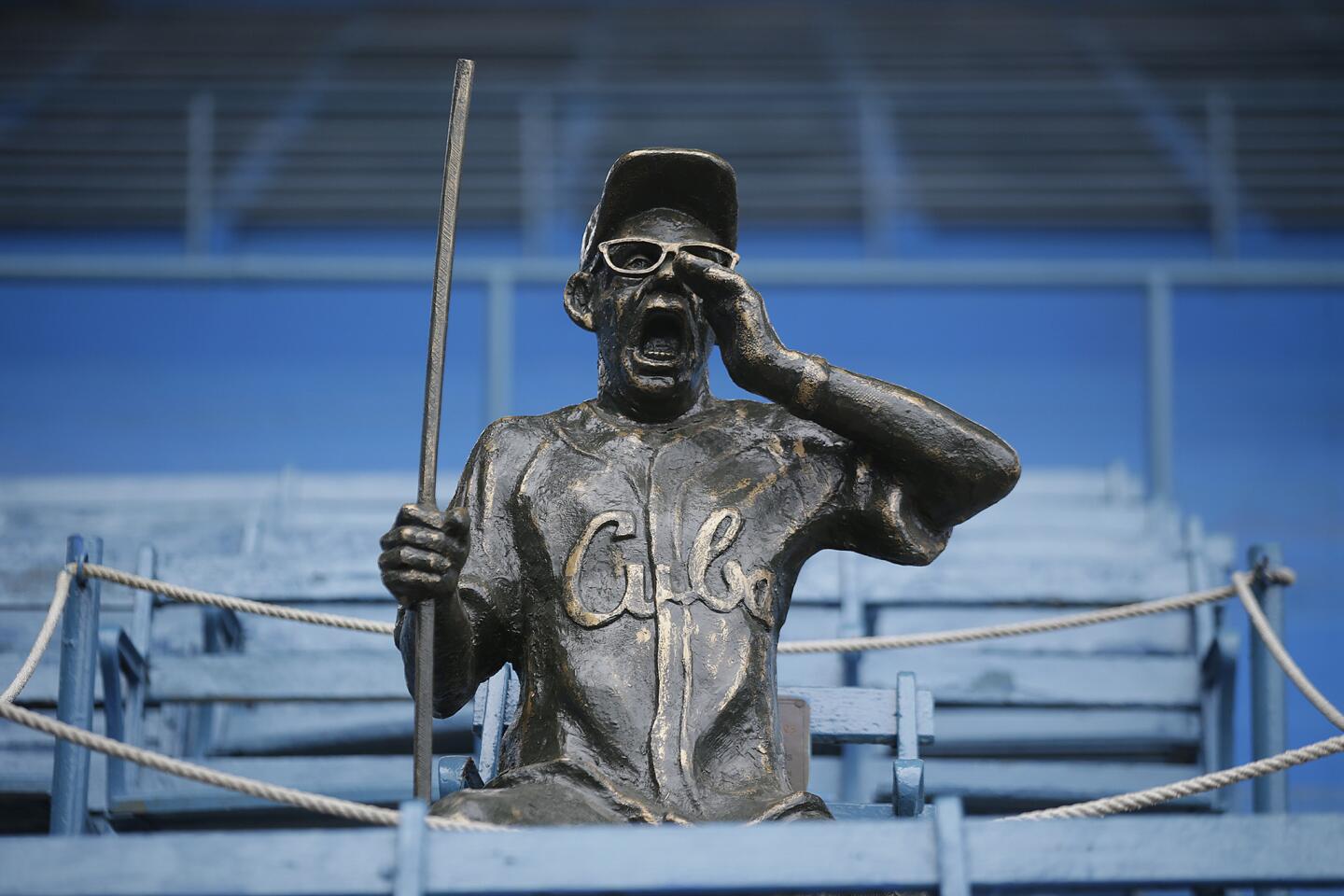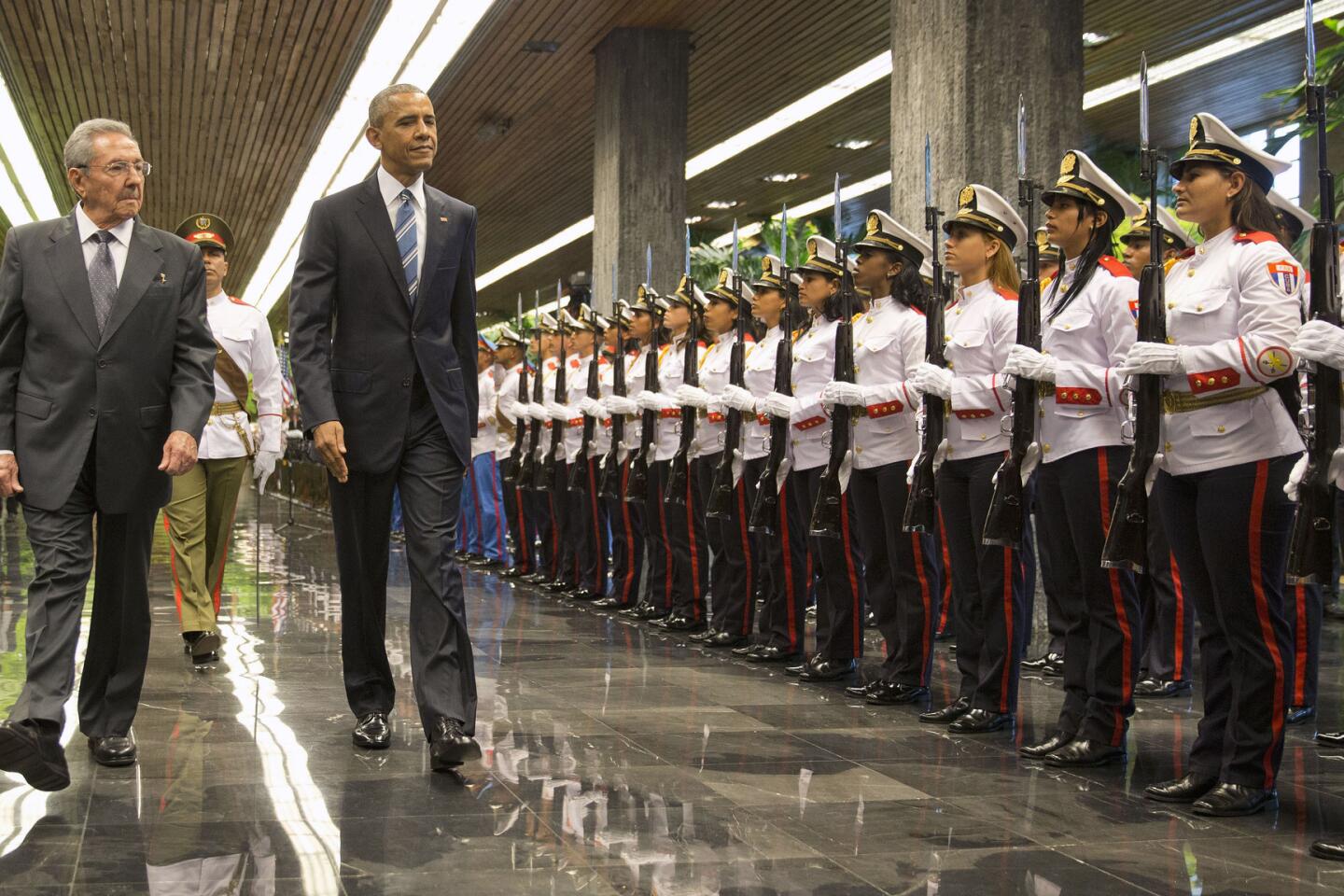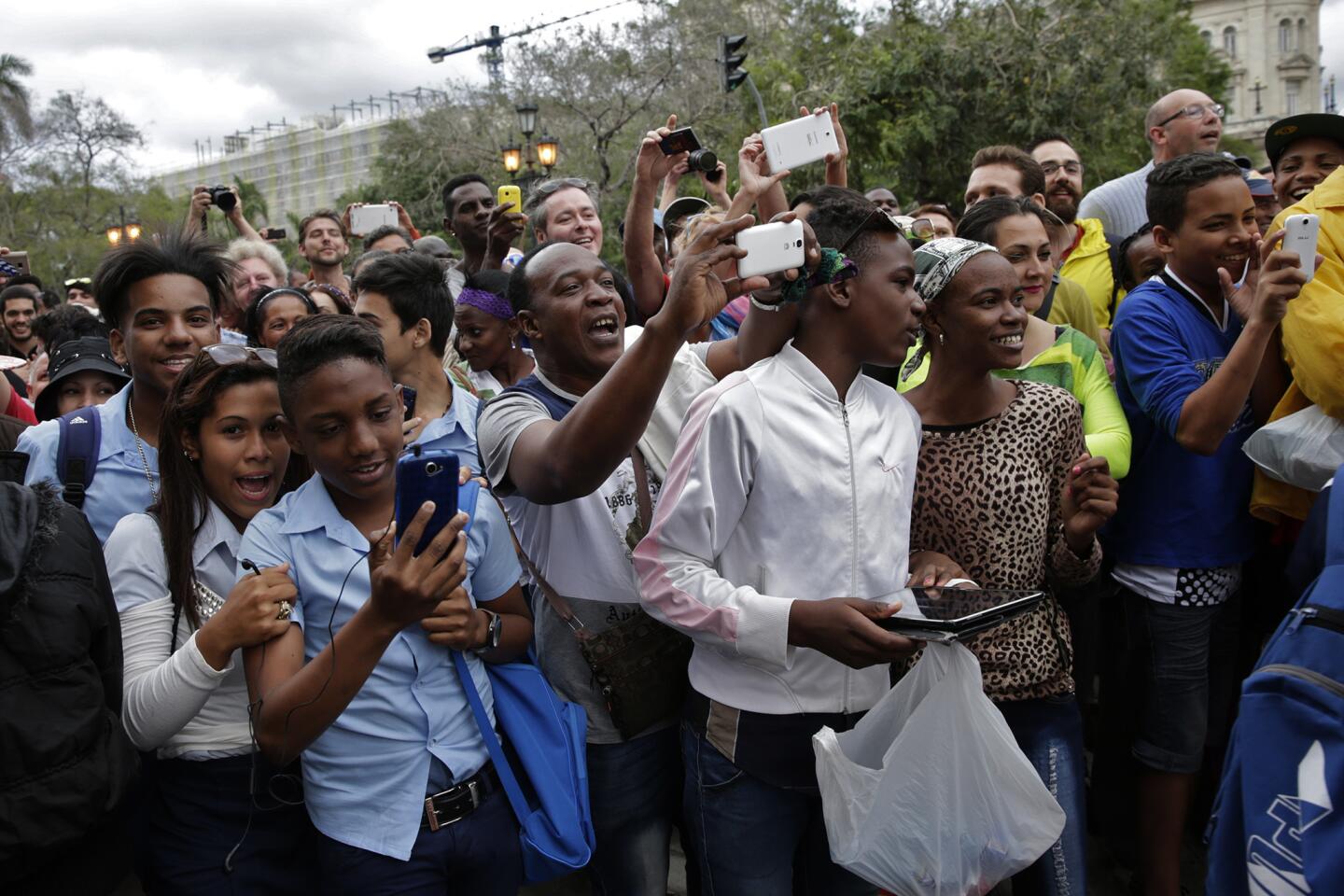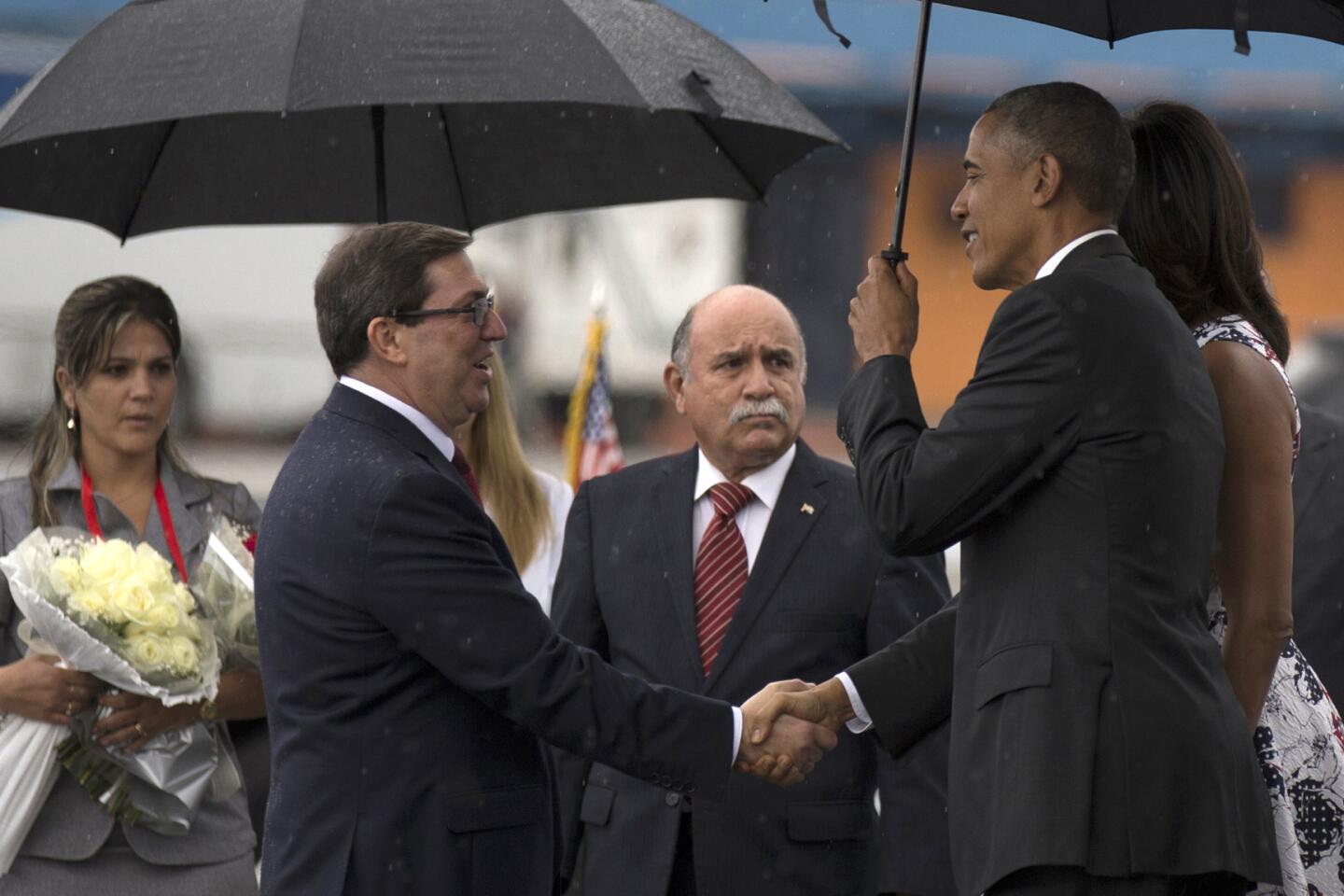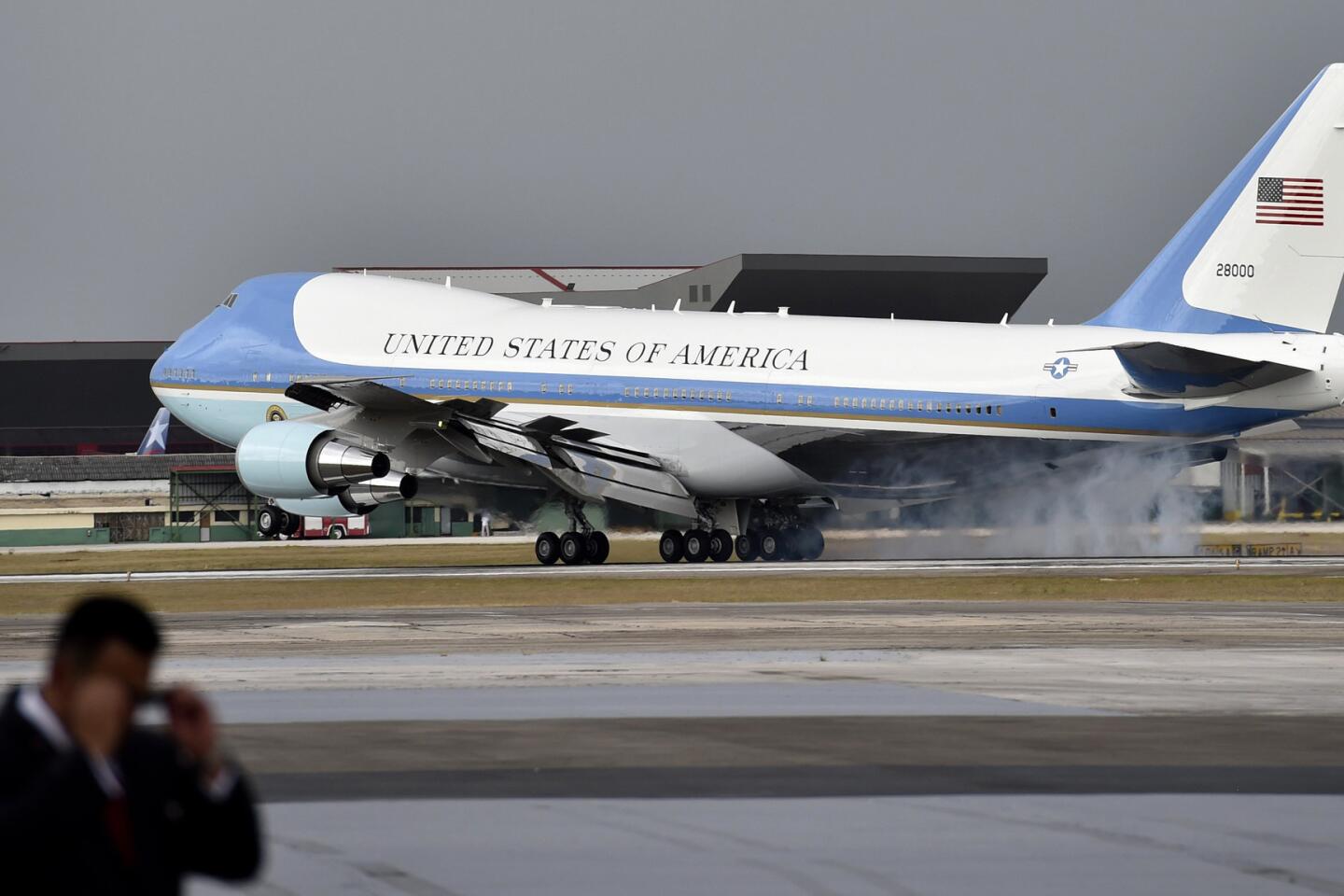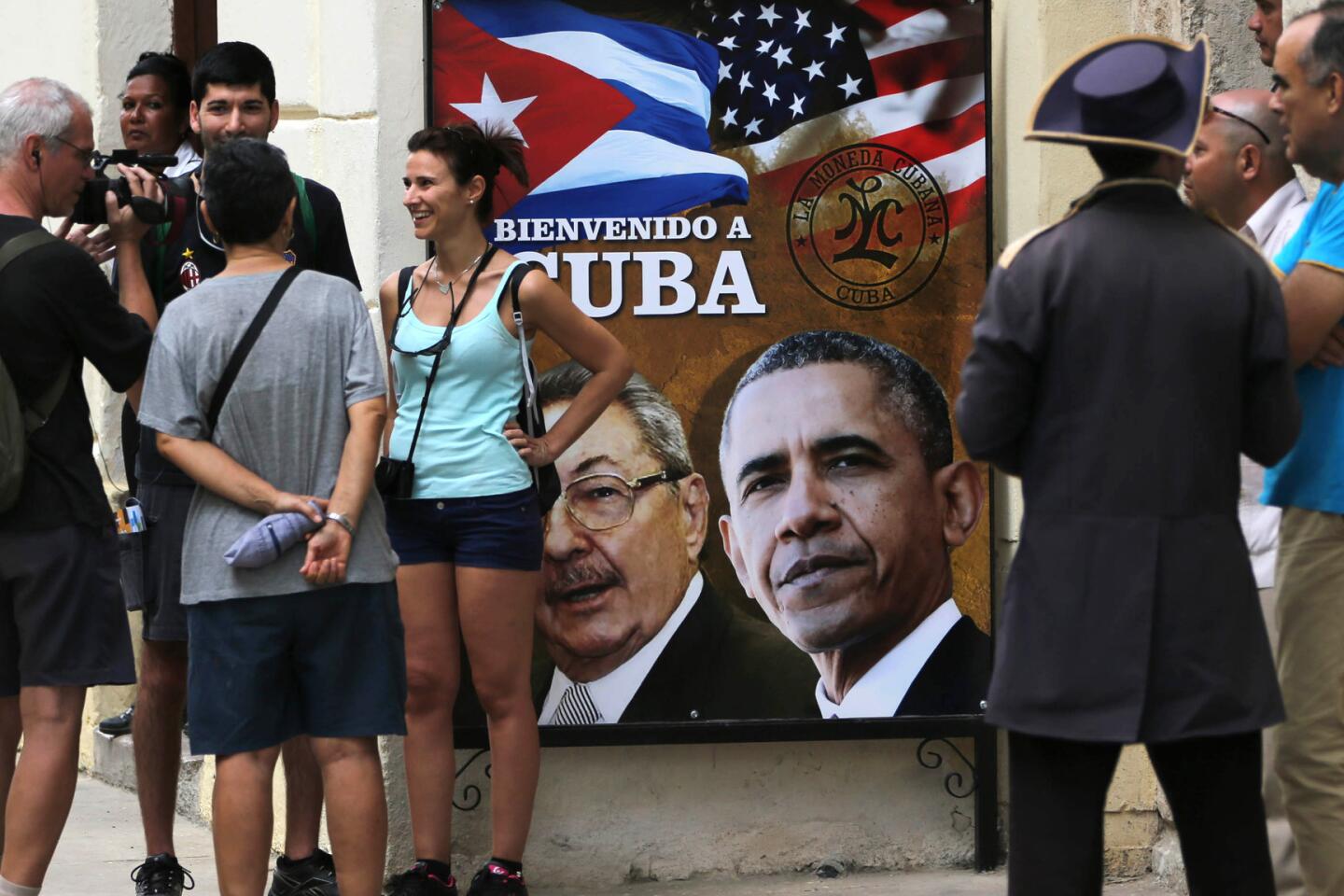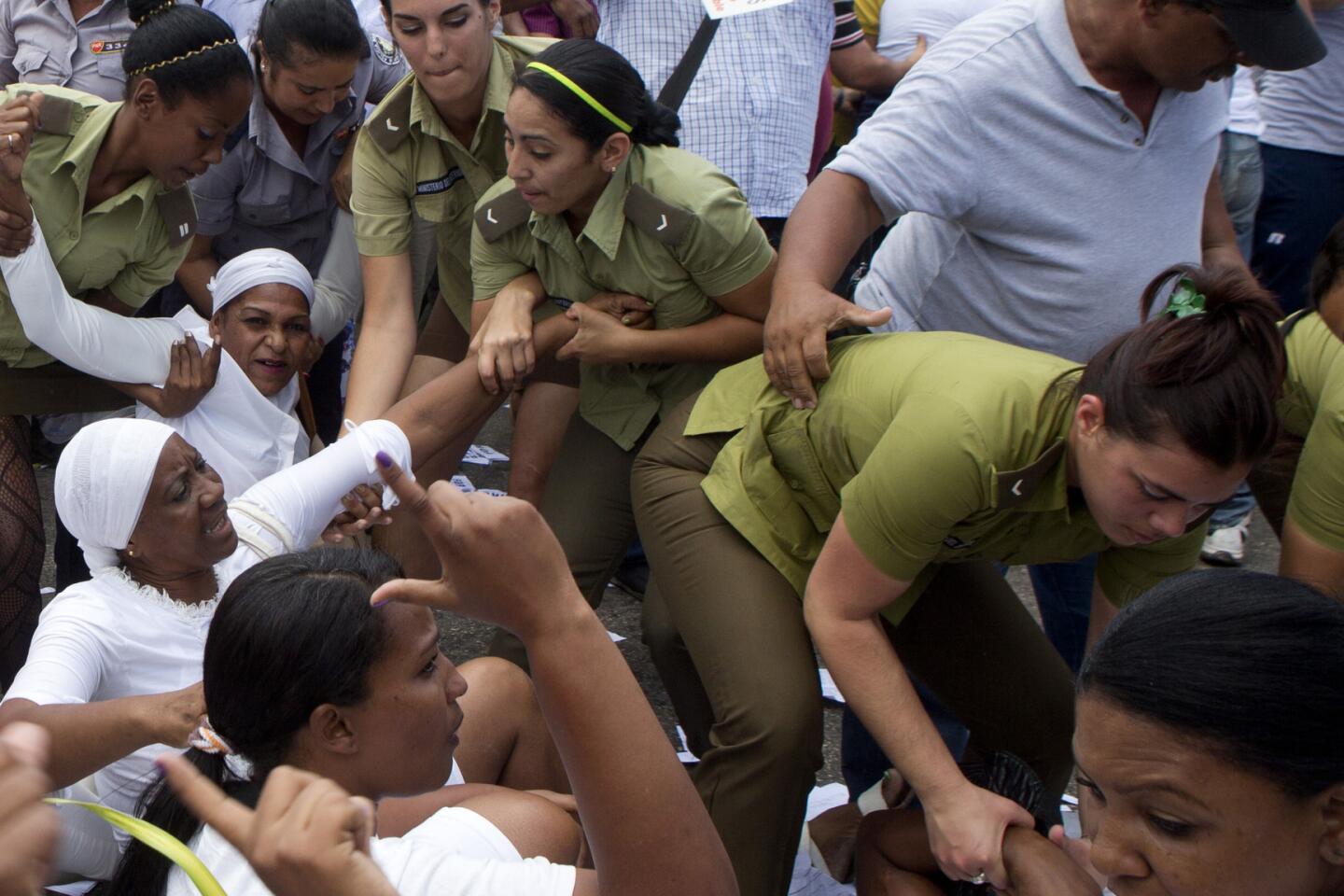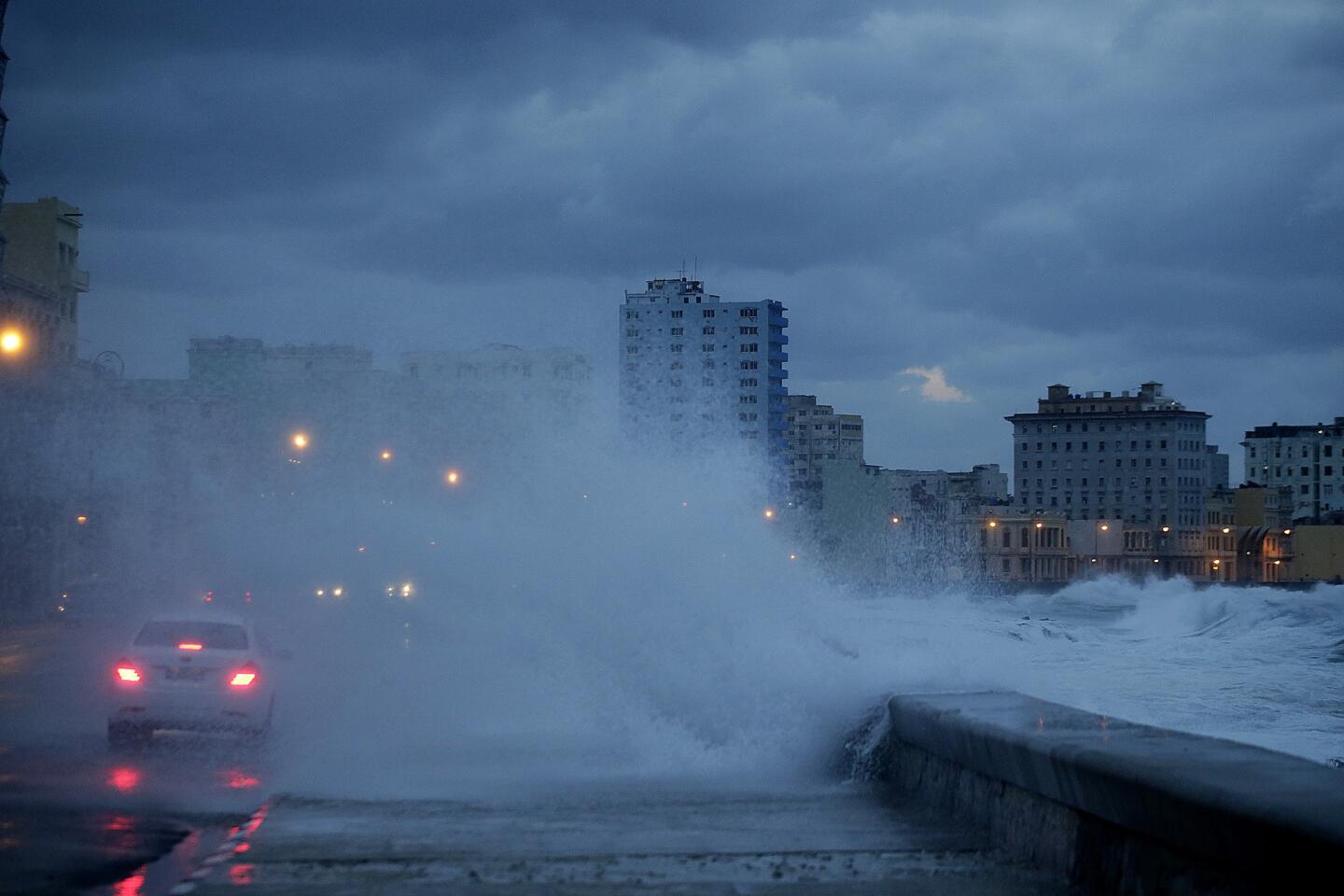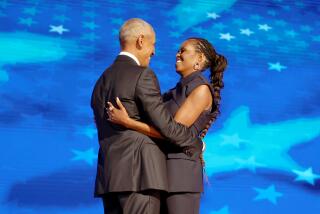Obama challenges leaders to keep up with an ‘evolution taking place inside Cuba’
- Share via
Reporting from Havana — President Obama ended his historic trip to Cuba with a challenge to its communist leaders Tuesday, pressing them to keep pace with the changes he set in motion for a new era in the relationship between the neighboring nations.
More than half a century after revolution in Cuba put the two countries on track to be Cold War adversaries, Obama seized on the presence of a new “evolution taking place inside Cuba, a generational change.” Eager to tip the balance toward popular rule on his three-day visit here, Obama urged President Raul Castro to set aside fears and put the future of his country “en las manos del pueblo Cubano” — in the hands of the Cuban people.
“Many suggested that I come here and ask the people of Cuba to tear something down,” Obama said from the historic Gran Teatro de la Habana, in a speech broadcast nationally here and translated into Spanish. “But I’m appealing to the young people of Cuba who will lift something up, build something new.”
Addressing Castro by name and looking briefly into the theater balcony where the Cuban leader sat, Obama said he need not fear “the different voices of the Cuban people and their capacity to speak and assemble and vote for their leaders.”
Obama followed his speech by meeting with some of the most well-known members of Cuba’s small, beleaguered dissident community, including several who were arrested just before his arrival in Cuba. He praised their courage, group members said, but also acknowledged that not all favored his policy of detente.
Obama’s address and his meeting with dissidents capped a trip in which he met the major goals that White House aides had detailed in previewing his visit. He publicly pressed Castro on democratic reforms. He highlighted the cause of the country’s politically disenfranchised. And he laid the groundwork for the stronger commercial relationship that he thinks will ultimately empower Cubans.
“I have come here to bury the last remnant of the Cold War in the Americas,” Obama said in his remarks.
As he closed the trip, in the warm spring sunshine of a ballpark, Obama appeared relaxed and playful at the end of what many regarded as a diplomatic gamble. Watching an exhibition game between the Tampa Bay Rays and the Cuban national team, Obama even razzed Castro when the American team scored. Tampa Bay won, 4-1.
“We initiated a new policy of engagement not out of naivete,” Obama told ESPN during the game. “But this now gives us more leverage and a greater platform to advocate for the things we care about.”
For Obama, the trip underscored his foreign policy outlook that engagement, rather than tough talk or isolating pariah states, will better position the U.S. in the coming years. That view was tested when news came that dozens were killed in twin bombings in Belgium. Obama conferred with his national security staff and other world leaders about the international response but marched on with his day of public diplomacy.
Critics disagreed with his decision to do so.
GOP presidential hopefuls Gov. John Kasich of Ohio and Sen. Ted Cruz of Texas slammed Obama for not cutting his trip short after the attack in Brussels.
“I hope he will say he’s leaving Cuba and heading back to the White House,” Kasich said early Tuesday.
Instead, Obama donned khakis and went to the ballpark, in a moment reminiscent of the so-called pingpong diplomacy of the 1970s. Following President Nixon’s historic opening of relations with communist China, the table tennis teams of the U.S. and China took turns putting on exhibition events in each other’s countries.
The game in Cuba, though, was also a reminder of the complicated relationship between the two nations, and the wrenching decisions made by Cuban star players who have sought to further their careers in the American major leagues.
The crowd, boisterous at other times, was silent as Rays leadoff hitter Dayron Varona was introduced before the game, and again during his first at-bat. Varona defected from Cuba in 2013 and signed a minor-league contract in 2015. On Tuesday, he became the first Cuban defector to return to Cuba to play in a baseball game.
“Welcome home,” Obama could be heard saying to Varona as he greeted members of the team.
Elsewhere around Havana, Cubans greeted the American presence warmly.
Spontaneous celebrations erupted in the streets as Obama delivered his address.
A few blocks from the site of Obama’s speech in colonial Old Havana, Maria Castro and Laritza Mojenas waved giant Cuban and American flags and led dozens of neighbors in joyous chants, cheering for the American leader, Castro and even his brother Fidel, their longtime leader.
“Obama brings peace!” they shouted in Spanish. “Long live Fidel! Long live Raul! Long live Obama!”
Across the street, 72-year-old Angel Tapia ducked into the home of a stranger and asked whether he could join him in watching Obama’s speech, broadcast live on Cuban state television in Spanish.
Tapia was a teenager when the Castro brothers changed Cuba forever with their communist revolution. A military officer for many years who now walks with a cane, Tapia calls himself a “son of the revolution.”
“I love the revolution,” he said.
But his eyes welled up with happiness as he watched Obama describe Cuba and the U.S. as brothers who have been separated for many years but share “the same blood.”
Unable to speak at times because he was overwhelmed with emotion, he gave a smile and thumbs up. “I’m so happy,” he said.
Despite his fidelity to socialist principles, Tapia said he welcomes Obama’s visit and the American investment he hopes it brings to Cuba. He doesn’t see that as a contradiction, and said he hopes Cuba can embrace a hybrid economic system like China.
“We aren’t enemies,” Tapia said. “That is propaganda. We are friends.”
Parsons and Linthicum reported from Havana and Memoli from Washington. Times staff writer Tracy Wilkinson in Washington contributed to this report.
Twitter: @cparsons, @katelinthicum
ALSO
Obama and Castro, side by side, both speak of human rights but sound discordant notes
Why Obama won’t be talking about Guantanamo during his Cuba visit
If all restrictions were lifted, flights to Cuba could drop 50% in price, study says
More to Read
Sign up for Essential California
The most important California stories and recommendations in your inbox every morning.
You may occasionally receive promotional content from the Los Angeles Times.
